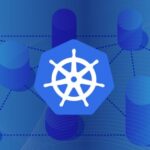Endpoints in Kubernetes are a way to map endpoints within a cluster of nodes to services. They allow the user to define what ports and protocols are exposed from a specific pod, and how requests should be redirected when those ports change. The most common case for using Endpoints is redirecting traffic from a service to a specific pod in the cluster. This is useful for applications that require more control over how requests are handled than what is offered by the built-in services and controllers. Endpoints can also be used to create a virtual network within the cluster that spans multiple pods or nodes, making it easier to route requests to the right service within the cluster.
When a service is deployed in Kubernetes, an Endpoint object is created that contains the IP address and port number of the specified service. Endpoints also allow network load balancers (NLBs) or ingress controllers to route traffic to the correct service port. By defining endpoints, different services can access the same Kubernetes cluster for communication and data sharing.
Kubernetes has several features that make managing endpoints easier and more efficient. First, Kubernetes allows all of the available endpoints to be managed in one place in an Endpoint Slice. This allows users to quickly find and modify any endpoint without having to search through multiple objects. Second, Kubernetes enables users to create multiple versions of the same endpoint, making it easier to spin up new services. Finally, Kubernetes supports Endpoint Presets for automating the creation of endpoints.
Endpoints are essential for deploying, scaling, and managing applications in Kubernetes due to their ability to create connections between services and route traffic. By taking advantage of Kubernetes’ powerful endpoint management system, users can easily spin up new services and keep up with the demands of their Kubernetes environment.



Pingback: What is Service in Kubernetes? - MtroView